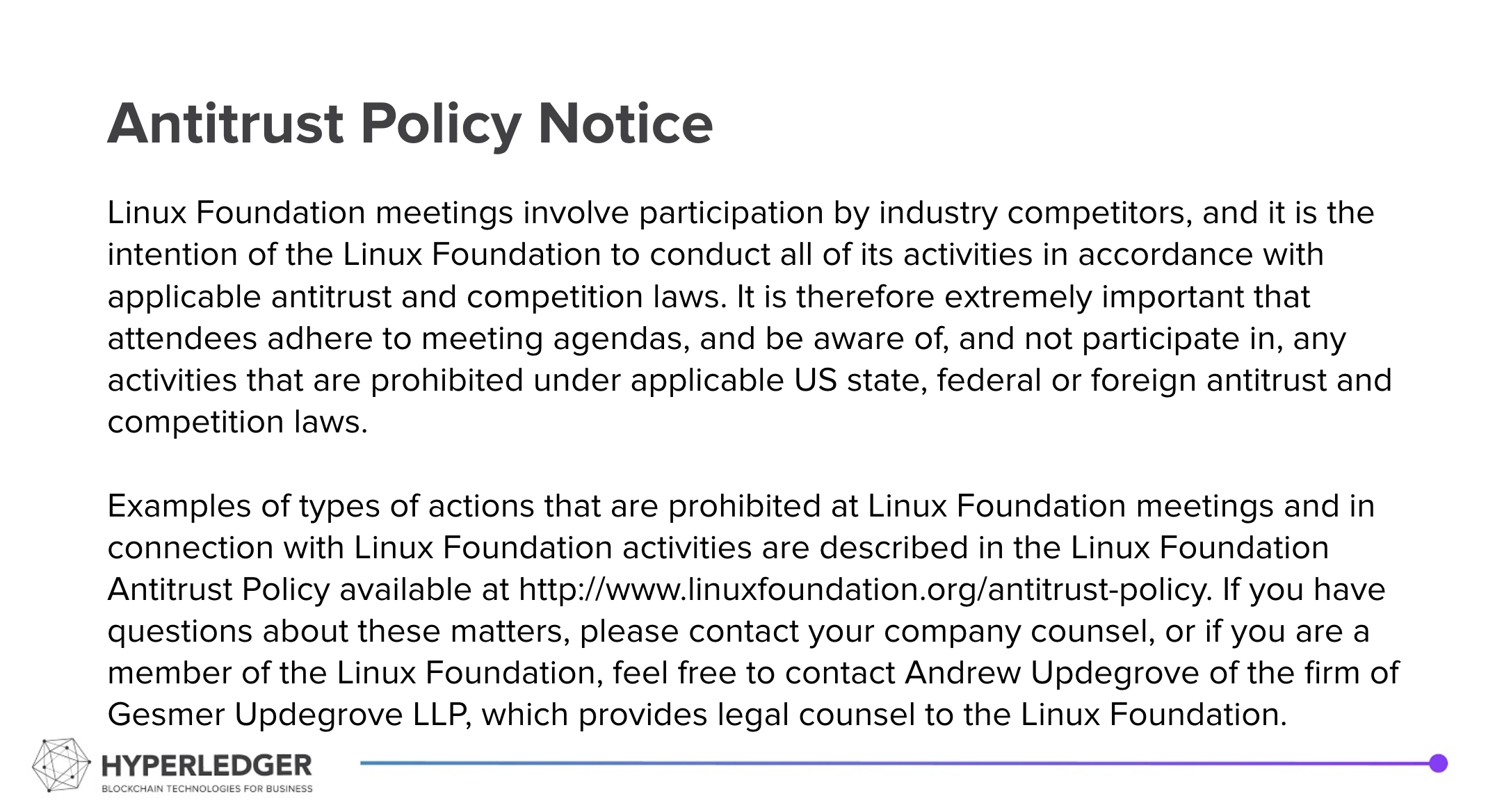Hyperledger is committed to creating a safe and welcoming community for all. For more information please visit the Hyperledger Code of Conduct.
Details
Date: Thursday, March 9, 2023
Time: 10:30pm IST / 6:00pm CET / 5:00pm GMT / 12:00pm EST / 9:00am PST
Meeting link: https://zoom.us/my/hyperledger.community.backup?pwd=dkJKdHRlc3dNZEdKR1JYdW40R2pDUT09
Zoom Meeting ID: 622 333 6701 Passcode: 475869
Meeting Recording on YouTube
Announcements
If you have an old invitation on your calendar, please update your calendar with the new meeting link announced in January: https://zoom.us/my/hyperledger.community.backup?pwd=dkJKdHRlc3dNZEdKR1JYdW40R2pDUT09
Presentation
Sherwood Moore of the Climate Action and Accounting SIG: The Evolution of Climate Accounting and the New Measurement Economy: Solving the Challenge of Scope 3 Emissions Together.
The SIG sees that corporations are going to be financially motivated to measure and reduce emissions.
- 4 pillars of measurement economy:
- Government Regulation - there's a new carbon tax being introduced on certain goods imported into the EU, the Carbon Border Adjustment Mechanism, which will affect corporate operating expenses. Expected to be $8B by 2030. We expect to see this rolled out in other countries in the future.
- Sustainable Finance - offering 5-10% preferred rates to companies that reduce their carbon footprint, affecting Cost of Capital. Estimate is $22 Trillion to be injected into the green finance market by 2031.
- Demand for Low Carbon Product & Services - affecting pricing premiums, market share, and creating new product categories
- Financial Marketplace - $130 Trillion committed by UN Glasgow Investment Alliance to corporations committed to achieving net-zero carbon.
- Measurement Economy & Corporate Strategy
Emerging market forces are creating the new Measurement Economy, providing the opportunity to lower operating expenses, increase market share, lower cost of capital and increase market valuation by lowering carbon emissions.
Corporations that survive and thrive will be those that learn to turn climate data from a liability into an asset.
- Open Source Value Proposition
- The SIG is trying to create an efficient market.
- This requires accessible data, low cost data, trusted data.
- Right now the market has an inefficient marketplace:
- Low data access - data is siloed, held by corporations, not accessible outside of companies
- High data cost: each corporate report has to be reviewed and analyzed separately
- Low data trust: fragmented standards, low data trust, no visibility into data history/provenance
- There's currently a lack of interoperability of climate data
- Jeff Pribich: when he worked at BP, data collection was a major challenge
- Data needs to be collected by each individual company
- The SIG is trying to create:
- High data access, using DLT, in a shared, interoperable layer of climate data
- Low data cost: Lower costs by digitizing and automating the monitoring, reporting and verification (MRV) process, creating an interoperable layer that can create reports at the company, factory or product level
- Improved data trust - Transparency into data provenance: measurement, reporting, verification, Immutable data provides a permanent record. AI identifies anomalies, opportunities.
- The SIG is trying to create an efficient market.
- Scope 3 Emissions Reporting Prototype
- Net Emissions Token Network - Open source tool to calculate emissions profiles at company, factory or product level. Profiles are calculated using emissions debt and credit tokens.
- Emissions Data Channel - OS tool to aggregate and verify emissions data
- Secure Identifyer Solutions - OS tool for identity and credential management, for net emissions token network, emissions data channel solutions.
- Progress:
- Call for Code 2022 Competition: green tech for a greener future
- Prototype submission on reducing methane emissions
- First place in IBM Green Practices Accelerator
- US$270,000 in prizes in December 2022
- University student research
- Columbia University - break even analysis of methane emission reduction technologies in the oil and gas industry
- University of Warwick. Competitive Analysis: Methane Emission Reduction Marketplace
- Call for Code 2022 Competition: green tech for a greener future
- Need: Corporate Partners
- Sherwood is interviewing companies, innovation people
Presentation Deck:
Discussion
Attendees
Sunny Vaish
Sayantan Basu
Shobi Khan
Alex Au'Dae
Meeting recording:


